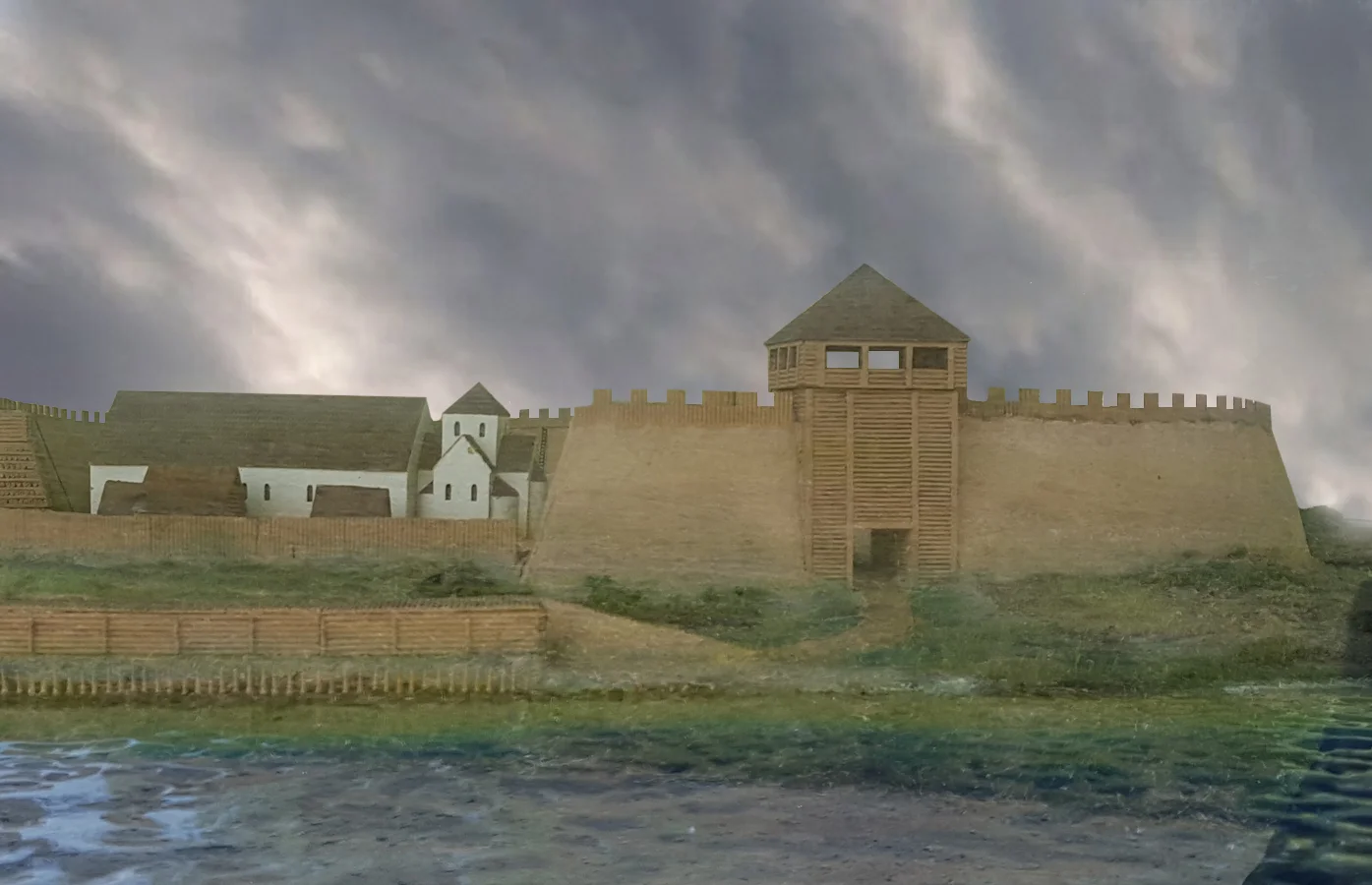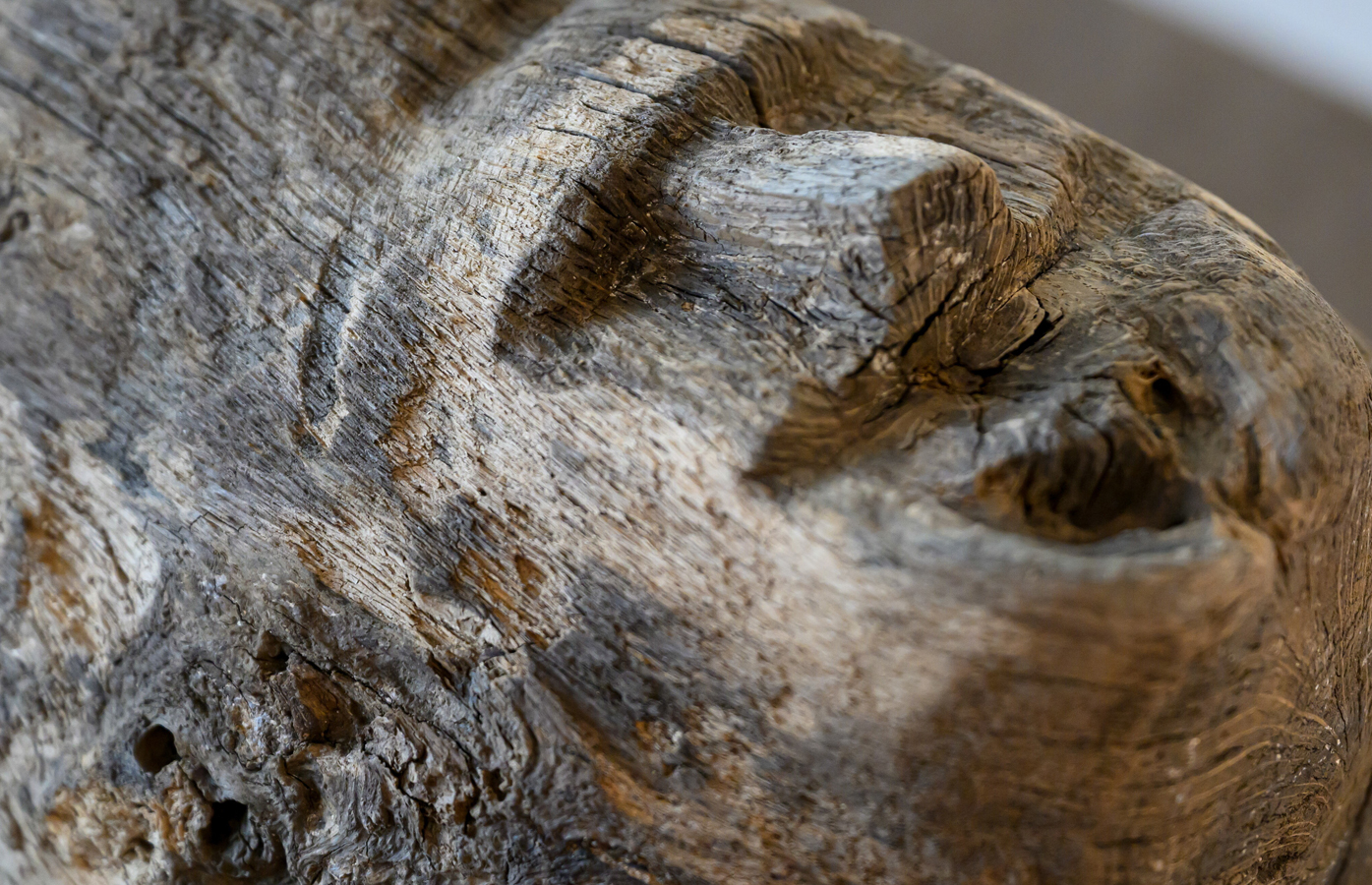Archaeologists from the Nicolaus Copernicus University (NCU) have made the remarkable discovery of a carved wooden beam in the waters of Lake Lednica, located between Poznań and Gniezno in west-central Poland.
Made from oak, the beam features a depiction of human face, which experts have dated to around AD 967 during the early Middle Ages.
Archaeologists suggest that the beam is part of the defensive ramparts of the medieval gród (fortress) that was constructed on Ostrów Lednicki, an island situated at the lake’s centre.
Ostrów Lednicki is thought to be the seat of the House of Piast, the first historical ruling dynasty of Poland. Previous studies on the island have located the remains of a palatium (palace) with an associated chapel, a church, and a large military garrison.

The island is also thought to be the site of the Baptism of Poland, where Mieszko I, the founder of the first unified Polish state known as the Civitas Schinesghe accepted Christianity in AD 966.
The beam is thought to have served as a structural “hook”, designed to connect sections of the rampart walls. The facial depiction would have faced outward towards the lake, suggesting a symbolic meaning.
The carved face, oriented outward toward the lake, is believed to hold symbolic or spiritual significance. Archaeologists suggest that it may have represented a protective figure or spirit thought to inhabit bodies of water. While similar anthropomorphic carvings have been uncovered in places like Wolin, such finds remain exceptionally rare across the Slavic world.
In an interview with journalists, Konrad Lewek from the Centre for Underwater Archaeology explained that this discovery is the first example of its kind dating to the early Middle Ages discovered in this part of Europe.
Header Image Credit : PAP
Sources : Science In Poland





